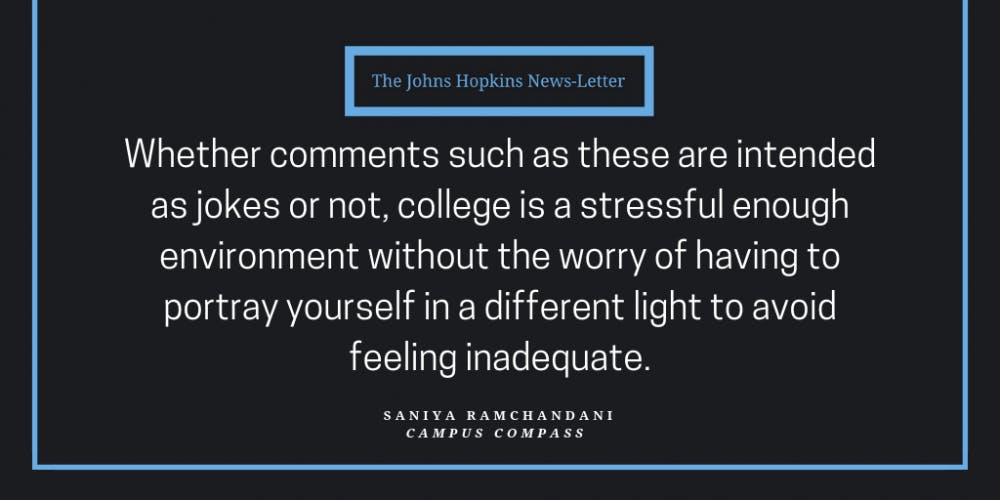
It is said that familiarity breeds contempt. Eating, studying, hanging out and maybe even sleeping with the same people makes you pretty familiar, I would say. And regardless of the fact that you may only have known them for a couple of months, constant close quarters may mean that they have granted themselves explicit permission to comment and advise you — without being prompted — on matters ranging from the trivial to the all-too personal.
I find that in college, especially, extremely personal decisions become large-scale debates between peers whose opinions you could really care less about. Do I put enough effort into my work? Should I be spending less time with my ex-boyfriend? Do I spend too much money? No one in their right mind would dare comment on such delicate subjects in a public forum in the real world, but for some reason I find myself in such situations all too often.
Jokes about the cost of my shoes that would make me extremely uncomfortable in any other situation have become something I have learnt to brush off on a daily basis. Even worse, the label “foreign” is one I have discovered is not only practically sharpie-d in jet black on my forehead, but also screamed at me when I do something as trivial as forgetting to take a sticker off a microwave-safe cup. Because we don’t have those in Singapore. No, in the third most economically competitive country in the world, we heat our food over open fires in the rainforest.
Approximately one in 10 Hopkins students is international, and that is a pretty strong minority. So when the word “foreign” is used in such a degrading way, to explain your supposed stupidity or to “correct” your English pronunciation (even though English has been your first language throughout your life... English, not American), it can make you feel very, very small. It’s the 21st century; we’re accepting of everyone now, so please catch up.
Another sensitive subject people are very quick to joke about is socioeconomic status. One quip in particular is branded in my mind, from when I got a C on a midterm. Upon sharing this information with a friend, I received the response, “Oh, so what? At least your parents can just get you a job.” I’m not too sure how my photographer father is supposed to get me a research position in theoretical cosmology, but okay. What shocks me even more is that every time someone sees the appalled, shell-shocked look on my face, they just remind me that they’re kidding. Never once has there been an apology, just an irrelevant and incorrect justification.
Now I might be wrong, but this seems an awful lot like middle school-era playground bullying to me. Whether comments such as these are intended as jokes or not, college is a stressful enough environment without the worry of having to portray yourself in a different light to avoid feeling inadequate. It’s so incredibly important to practice empathy; there’s truly no way of knowing what’s going on behind someone’s brave face. Though they may laugh it off, they’ll do so at an ever-so-slightly higher pitch and replay those words over and over again in their head until they’re ingrained so deep it alters their behavior.
On a larger scale, I really don’t understand how, in a place so forward-thinking and constantly at the forefront of innovation, we can be so focused on divisions. The same people that preach diversity and collaboration and want to enact social change think it’s okay to diminish someone’s entire identity and justify it as a “joke.” Honey, buy a dictionary; for it to be a joke, it has to be funny. If we just concentrated all this energy on our similarities and not our differences, we might be the first generation not engaged in some form of class conflict. Hopkins is a melting pot for people of all walks of life, and the point of this whole college thing is to learn more about what makes each of us so wonderfully unique.
If you look up the meaning of the word foreign, you’ll find that it describes something “strange or unfamiliar,” or “characteristic of a country or language other than one’s own.” So maybe think twice before you call out that guy with the “weird” accent for pronouncing a word “wrong.” To about 7.5 billion people, you’re foreign too.





